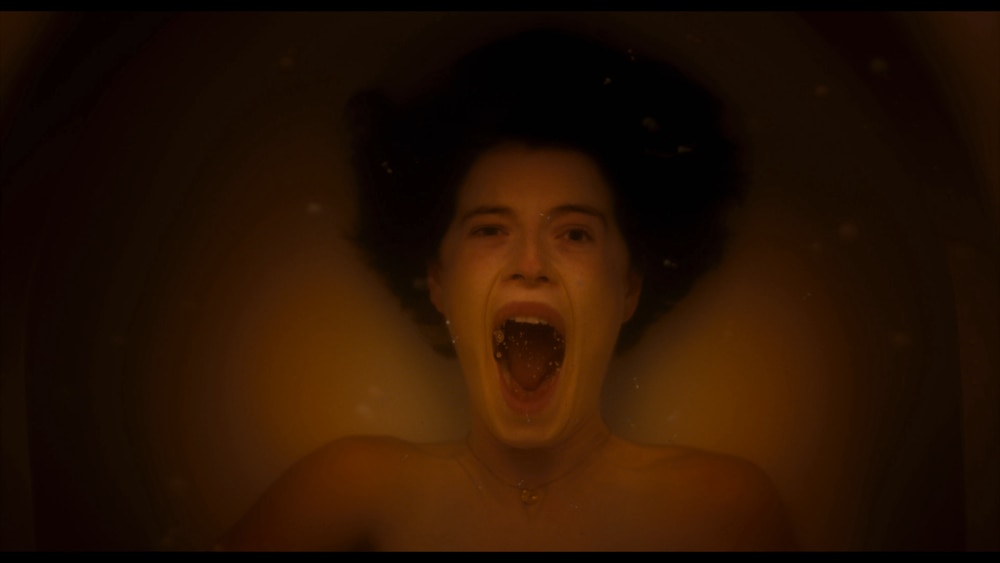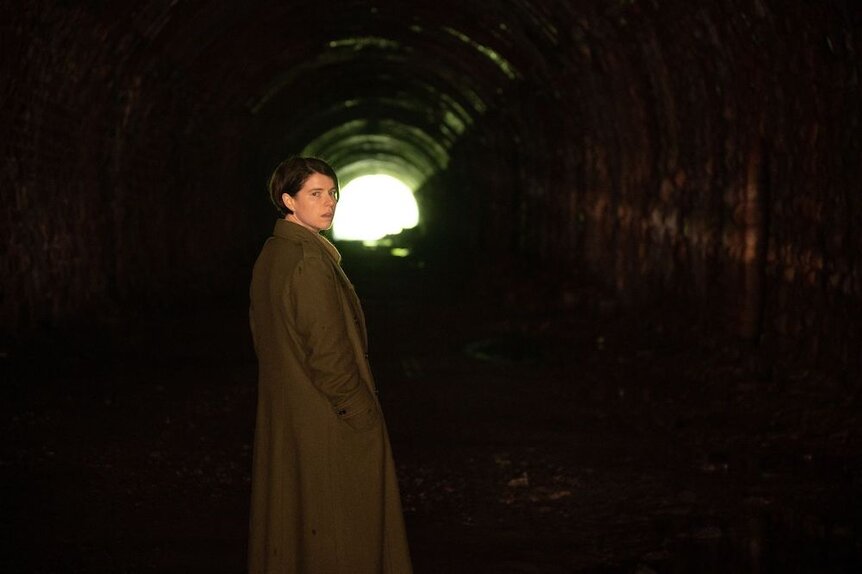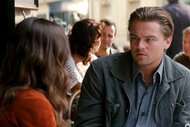Create a free profile to get unlimited access to exclusive videos, sweepstakes, and more!
Alex Garland says 'Men' is an 'inverted' horror movie inspired by 'Attack on Titan'
The writer-director's new film asks more questions than it answers — by design.

While writer-director Alex Garland’s two previous movies, Ex Machina and Annihilation, could perhaps be best described as extremely cerebral sci-fi, his new project, Men, is much more of a horror film. What, exactly, is so undeniably horrifying about it is a little harder to pin down by design.
“I was trying to make a film about a sense of horror,” Garland told the audience following a press screening of the movie last month. “A horror film about the sense of horror was roughly what was turning around in my head.”
Men follows a woman named Harper (Jessie Buckley) as she rents a house in the English countryside following a devastating tragedy. However, the men who live in the town, all played by Rory Kinnear, are some sort of malevolent force. There is indeed a sense of horror in Men, but there are also more specific types of horror, like gendered horror, psychological horror, and a jaw-dropping swerve into body horror. Still, Garland is accurate when he describes the overall vibe as being about a more ill-defined and unsettling nebulous sense of horror. Something is wrong here. That neither Harper nor the audience knows what, exactly, it is just adds to our dread.
In Garland’s estimation, Men is not a typical horror movie, though. Most horror movies follow a similar arc. They start in what feels like the mundane real world before something supernatural arrives. From there, there’s an escalating sense of danger, which Garland said is “usually demonstrated by killing people. Say [it’s] one by one, so a group of seven will end up as a group of two by the end of the film."
“And the evil manifestation is getting increasingly powerful as the film continues until, at the very end of the film, when it is at its most dangerous and the hero is at their most disempowered, and at that moment the hero does something brilliant and defeats it,” he continued. “The structure is kind of like an upward graph with a steep drop. And this film slightly inverts that.”
Speaking to SYFY WIRE and other members of the press a few days after the screening, Garland said he wasn’t intentionally trying to evoke any famous touchstones of the horror genre in Men, though he admitted that he’s certainly been influenced on some level by movies like the folk-horror classic The Wicker Man or a film about a much less-posh visit to a house in the woods, Evil Dead. Those indirect influences aside, Garland was trying to make an original sort of horror movie without any homages to what had come before.
Now, without spoiling what happens, it’s fair to say that Men does not end in a way that anybody would expect. That said, there is definitely is an escalation, and it’s one of the few parts of the movie that Garland will cop to being directly inspired by something else. The movie ends with an astounding bit of body horror, something that originally was just described as “mutations” in the script until Garland saw something that prompted him to go a lot further.
“It was a show called Attack on Titan,” he recalled after the screening. “Over Christmas, I was watching this amazing animated TV show called Attack on Titan with my daughter. It does these very brilliant things with human forms. In the script it said ‘mutations,’ and I was sort of thinking, like, The Thing or something. Then I thought I was being lazy. I was watching Attack on Titan going, ‘Gosh, this is so good, I really need to get my act together.’”
In addition to the anime-inspired levels of body horror, Men is clearly exploring the terror of misogyny. It does not, however, draw any clean conclusions.
“A film typically wants to answer all questions that it poses, and people can even feel irritated if a question is asked and not answered… The key thing was to pose that question,” Garland said, specifically speaking of the choice to have Kinnear play all of the men in the film.
“The question might be, does Harper see all men as the same? Because neither Harper nor the film ever remarks on it. It’s only the viewer who is left to remark upon it. Is it that Harper sees all men as the same whilst they are in fact different, or, is it that all men are the same and she doesn’t see that?” Garland said. “The way I see it, they’re two questions that sound very similar but have completely different inferences. Then, I’m personally content to leave it there, because that’s actually the point of the film.”
Just because the meaning isn’t fully explained in the film doesn’t mean Garland and his cast didn’t think about the implications of a gender-based horror film — and one coming from a male creator.
“We spoke about it a lot,” Garland says. “The clue’s in the title. Did we think about it? Did we understand what we were doing? Did we understand what we were trying to do? Yeah, we did.”
“But, also it was alive,” Buckley added. “There was no projection on it before we started filming. For me, I was more interested in exploring something where I was actually experiencing it presently and relating to it presently — and relating to it the way that an audience would — rather than project my idea of what man is or what my relationship to man is.”
“It was about our relationship to each other as man and woman and how we subverted it and asked questions about it and poked holes in it and moved forward with it,” she said.
“If I’m not being subversive,” Garland said, “I’m wasting my time.”
Men premieres in theaters on May 20.
Other upcoming horror films include Firestarter in theaters and streaming on Peacock now, The Black Phone in theaters on June 24 and Jordan Peele's NOPE in theaters July 22.



























